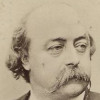“ The poor man retains the prejudices of his forefathers without their faith, and their ignorance without their virtues; he has adopted the doctrine of self-interest as the rule of his actions, without understanding the science which controls it, and his egotism is no less blind than his devotedness was formerly. ”
Alexis de Tocqueville, Democracy in America (1835). copy citation
| Author | Alexis de Tocqueville |
|---|---|
| Source | Democracy in America |
| Topic | egotism action |
| Date | 1835 |
| Language | English |
| Reference | |
| Note | Translated by Henry Reeve |
| Weblink | http://www.gutenberg.org/files/815/815-h/815-h.htm |
Context
“but it would seem that the nearer they draw to each other, the greater is their mutual hatred, and the more vehement the envy and the dread with which they resist each other's claims to power; the notion of Right is alike insensible to both classes, and Force affords to both the only argument for the present, and the only guarantee for the future. The poor man retains the prejudices of his forefathers without their faith, and their ignorance without their virtues; he has adopted the doctrine of self-interest as the rule of his actions, without understanding the science which controls it, and his egotism is no less blind than his devotedness was formerly. If society is tranquil, it is not because it relies upon its strength and its well-being, but because it knows its weakness and its infirmities; a single effort may cost it its life; everybody feels the evil, but no one has courage or energy enough to seek the cure;”
source



